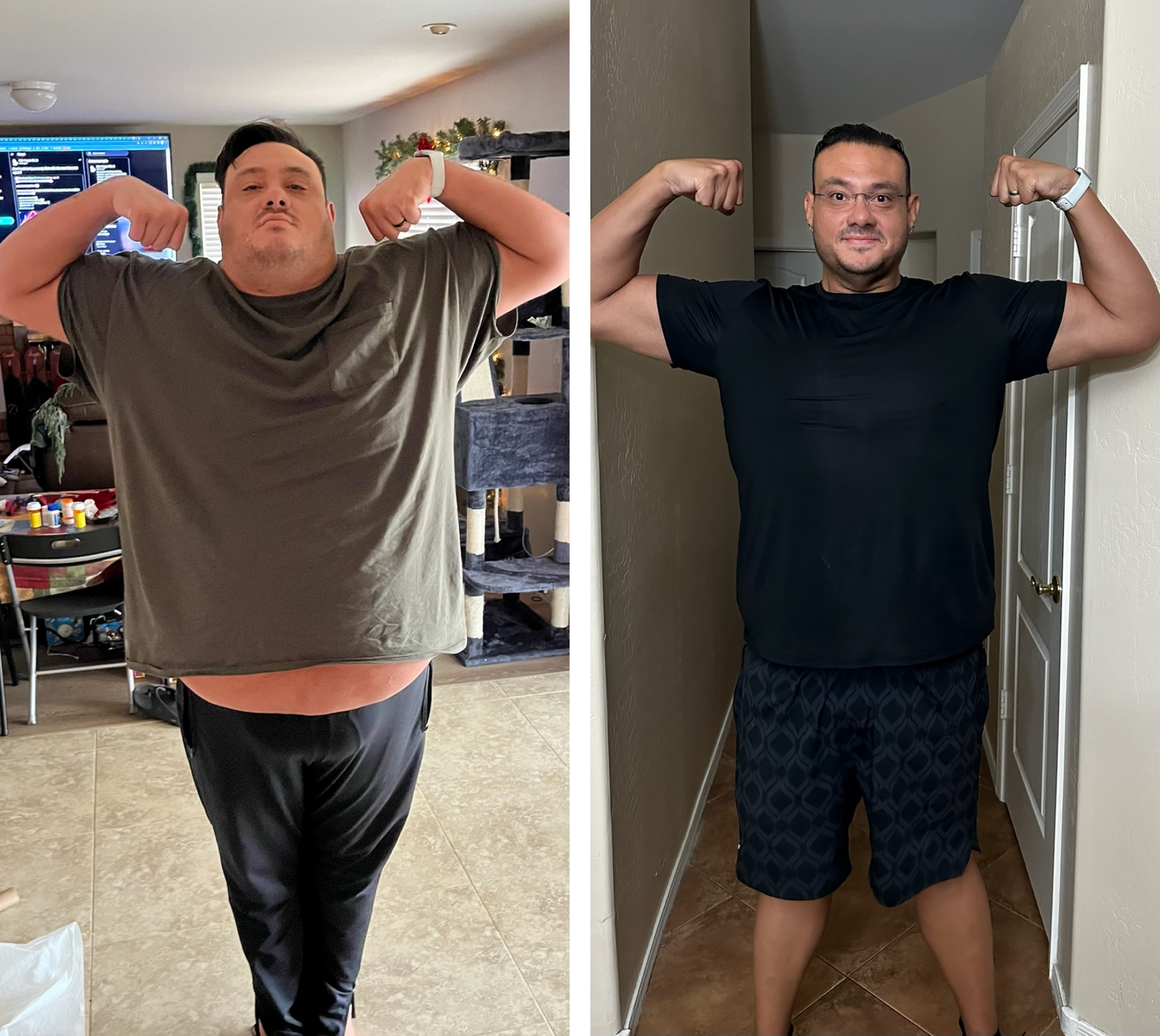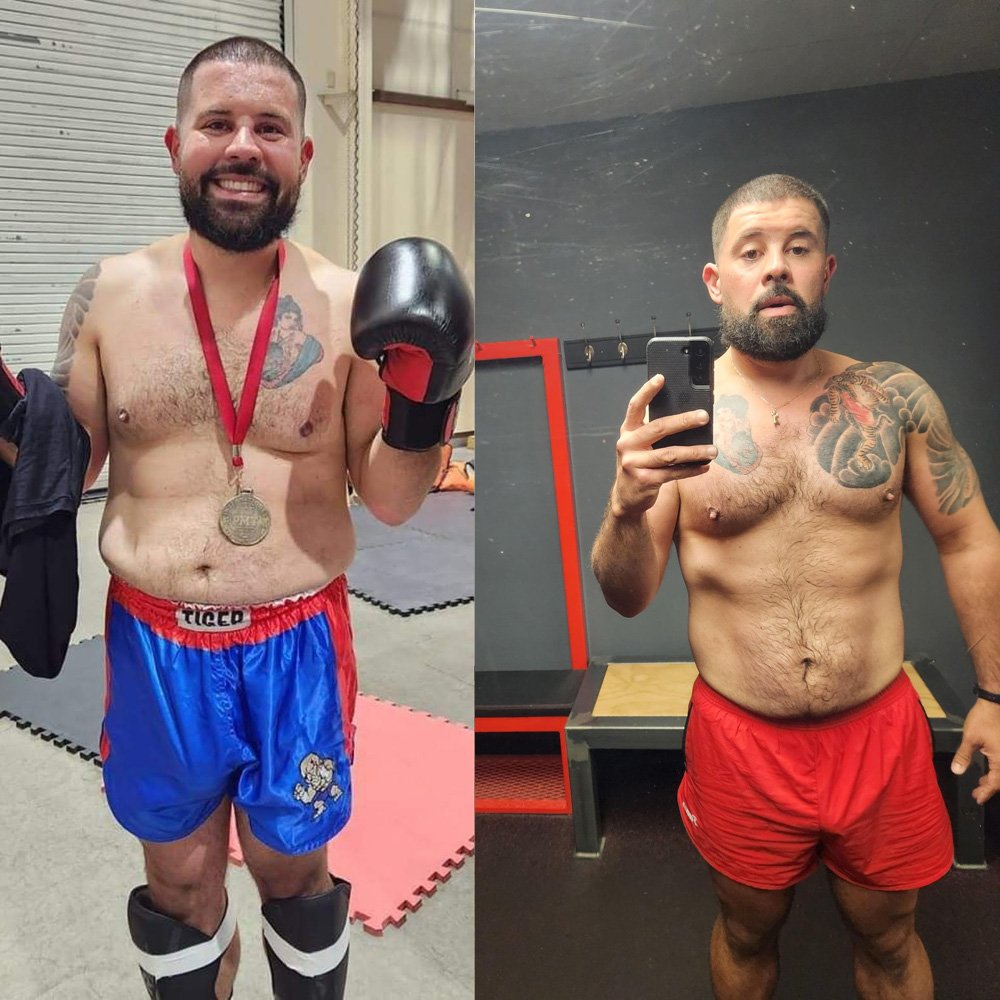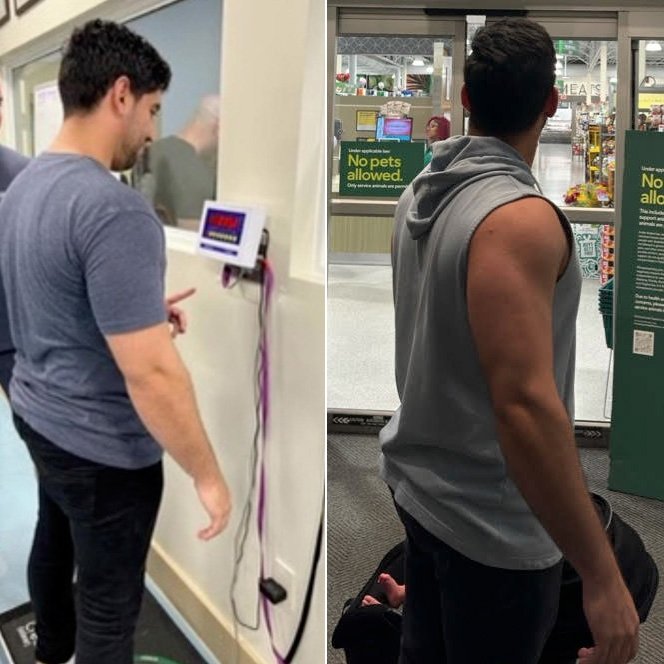When men have joint pain, it can become an uncomfortable experience that can make it difficult to accomplish even simple tasks. In many instances, the pain is so unbearable that men are forced to give up their normal physical activity, such as running and weightlifting, which can further impact their physical function and overall sense of well-being.
Many men attribute their joint pain to the stress of constant wear and tear on their bones and joints as they age, which can happen naturally. But there are times when that joint pain happens suddenly without a reasonable explanation, causing men to question their health. Of course, in some instances, stressful situations at work or home can become a common cause of joint pain for many adults who are under pressure to uphold their duties and responsibilities. Under normal circumstances, that joint pain is typically temporary and starts to decrease once those stressful situations are resolved.
However, when men begin to experience chronic pain in their bones and joints, it is usually a red flag that a more serious underlying complication could be the cause. In most cases, a health issue such as arthritis is usually the primary cause of joint pain, but there’s one other possible health condition that most men tend to overlook: a hormone imbalance such as low testosterone.
Every man knows testosterone that is essential for certain aspects of their body as they grow and develop during puberty. But once men reach their 20s, it’s natural to forget that testosterone will continue to play a part in their physical health as they get older. Just as testosterone fuels their energy, builds their muscles, and strengthens their bones when they are younger, the male sex hormone is also responsible for maintaining those same attributes as they get older. However, even when some men may remember testosterone’s role in their muscle and bone development, most are unaware that it can also play a pivotal role in how you experience joint pain.
How Does Testosterone Affect Your Joint and Bones?
Testosterone promotes bone health by stimulating the release of osteoblast cells, which are primarily responsible for new bone formation. Osteoblast cells work on strengthening and maintaining your bones by synthesizing collagen and releasing calcium and mineral deposits to strengthen your bones. However, when testosterone levels begin to decrease, the deficiency can also reduce your bone density, making you more vulnerable to bone fractures. The androgen hormone has also been shown to profoundly affect your joints, as it helps maintain joint health by limiting inflammation. So when your testosterone levels decline, it can also increase the risk for inflammation in your joints, which can cause you to experience joint pain.
Low testosterone can also negatively affect the cartilage around the joints. Cartilage is the thin muscle tissue between your joints that allow your bones to rub and pass over each other as your joint bends and straightens during physical activity. Typically, the body will eventually produce less cartilage as men age, which can decrease the body’s ability to stop the degradation of cartilage tissue, leading to joint pain and osteoarthritis. Having healthy levels of testosterone can prolong that process. Studies show that testosterone can protect the cartilage surrounding the joints and prevent cartilage degradation. However, if your testosterone is low, it becomes more difficult for your body to protect the cartilage from deteriorating.
Weight gain can also put pressure on your joints and increase your risk of developing osteoarthritis, which can also cause joint pain and inflammation to get worse. Typically, testosterone helps to manage your weight by regulating the breakdown of fats, carbohydrates, and proteins. But once your testosterone levels drop below normal standards, it can cause you to gain weight, which can put stress on your body, eventually weakening your joints and causing joint pain.
Feeling Run-Down?
Take the Low-T Quiz Today
Our men’s clinic can restore your physiology, change your body composition and optimize your health to slow down aging and prevent health complications caused by low testosterone.
Take back your life and become a better you today!
Why Joint Pain Occurs
Aside from low testosterone, there are several reasons why joint pain may occur. Joint pain can be caused by several types of injuries or medical conditions, which include:
- Lupus
- Bursitis
- Tendonitis
- Bone or joint infections
- Muscle pain
- Fracture or strain
- Hypothyroidism
Studies reveal that stress can also cause chronic pain in the joints due to high cortisol levels. Cortisol, also known as the stress hormone, is usually produced by your adrenal glands and regulates how your body responds to stress. It’s also responsible for many biological functions, including:
- Maintaining blood pressure
- Controlling blood sugar level
- Regulating your sleep cycle
- Managing your metabolism by controlling the breakdown of fats, proteins and carbohydrates.
Typically, cortisol levels will increase if you’re stressed to help keep your body on alert for other potentially stressful situations. However, if you’re constantly stressed out, your body will continually produce high levels of cortisol, which may decrease your testosterone. Increased cortisol production can also cause insomnia and fatigue, which can wear down the body and increase the risk of joint pain.

What Other Symptoms May Indicate Low Testosterone
Aside from joint pain, there are several other symptoms that are prime indicators of low testosterone. The most common symptoms of Low T include:
- Constant fatigue
- Low libido
- Reduced muscle mass
- Infertility
- Changes in mood
- Erectile dysfunction
- Anxiety or depression
Low testosterone can also cause your bone density to weaken, which can lead to osteoporosis and increase the risk of bone fractures, another possible symptom of low testosterone. If you’re relatively healthy and find that your bones are weakening or becoming easily fractured from physical activity, you may want to have your physician check your testosterone levels and consult with them about treatment before the condition worsens.
How Joint Pain Is Treated
Although there are various things you can do to help treat your joint pain, speaking with a physician needs to be your first step in the process. A licensed medical professional can conduct a physical examination and request blood work to help determine the cause of your joint pain and provide many recommendations to help treat the condition. They may prescribe pain medication such as glucosamine to help ease the pain in your joints. Your physician may also suggest physical therapy since certain exercises have been shown to relieve joint pressure. Regular exercises such as cycling, swimming, or walking can help you decrease the risk of osteoporosis and keep your joints strong and flexible for physical activity. If it turns out that your joint pain is the result of a hormone imbalance such as low testosterone, your physician may also suggest testosterone replacement therapy to help optimize your testosterone levels so you can prevent further joint deterioration. There are several ways TRT can help improve your health and treat joint pain, which include:
Weight Management
Once your testosterone levels are optimized, you will have enough testosterone hormone to increase your muscle mass and effectively manage your body fat so you can lose weight. With healthy weight loss, you’ll be able to reduce the stress on your body and relieve the pressure placed on your joints. By having a lower body weight, you’ll be able to exercise more regularly, which can also help to restore your joint strength.
Restore Energy Levels
Many patients with low testosterone will typically experience fatigue, which can make it more difficult to engage in regular exercise. However, once your testosterone levels are raised to optimal standards, your normal energy levels will be restored, allowing you to return to normal exercises. With exercise, you’ll strengthen your bones and joints, which can also help support and repair your joints.
Cartilage Repair
Research has revealed that testosterone can play a role in the production of chondrocytes, the cells responsible for building the cartilage between your bones. Increased testosterone levels can stimulate the production of chondrocytes and help your body repair damaged or worn-down cartilage, which will help to reduce your joint pain.
At Renew Vitality, our physicians specialize in addressing joint pain due to low testosterone. Our team of medical professionals provides testosterone treatments that can help to replenish your diminished testosterone levels and optimize your physical health to increase the chances of treating and alleviating your joint pain. With our testosterone replacement therapy, you can lose weight and enhance your physical function so you can return to normal physical activity and enjoy a healthier and more fulfilling quality of life. Contact us at 1-866-995-2371 to schedule an appointment and speak to one of our physicians about treatment options at any of our hormone replacement clinics in the United States.
Resources:
























